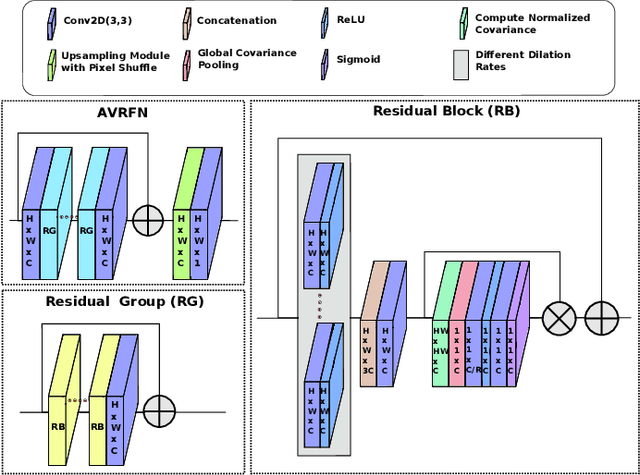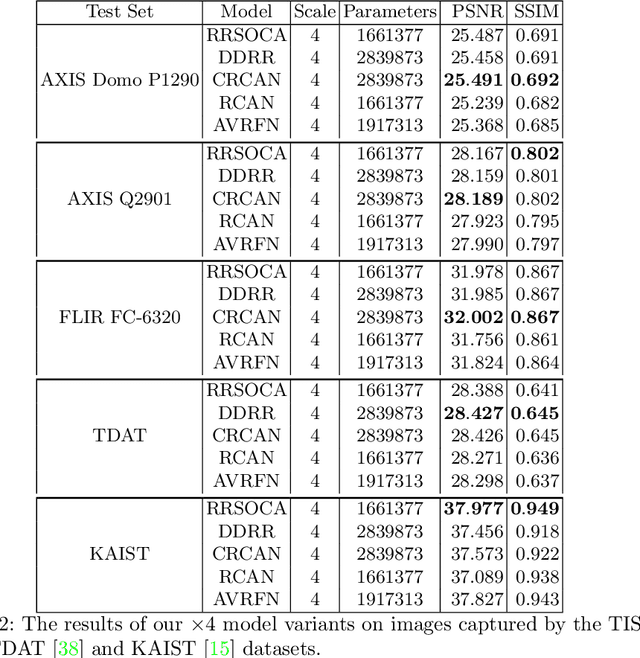Thermal Image Super-Resolution Using Second-Order Channel Attention with Varying Receptive Fields
Paper and Code
Jul 30, 2021



Thermal images model the long-infrared range of the electromagnetic spectrum and provide meaningful information even when there is no visible illumination. Yet, unlike imagery that represents radiation from the visible continuum, infrared images are inherently low-resolution due to hardware constraints. The restoration of thermal images is critical for applications that involve safety, search and rescue, and military operations. In this paper, we introduce a system to efficiently reconstruct thermal images. Specifically, we explore how to effectively attend to contrasting receptive fields (RFs) where increasing the RFs of a network can be computationally expensive. For this purpose, we introduce a deep attention to varying receptive fields network (AVRFN). We supply a gated convolutional layer with higher-order information extracted from disparate RFs, whereby an RF is parameterized by a dilation rate. In this way, the dilation rate can be tuned to use fewer parameters thus increasing the efficacy of AVRFN. Our experimental results show an improvement over the state of the art when compared against competing thermal image super-resolution methods.
 Add to Chrome
Add to Chrome Add to Firefox
Add to Firefox Add to Edge
Add to Edge